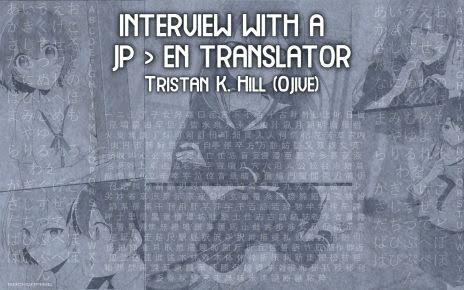Tsukimichi Moonlit Fantasy is an isekai light novel written by Kei Azumi. This review is based on the official English translation of the first volume by Hanashi Media. An anime adaptation of the series by studio C2C aired its first season back in 2021, and it was followed by a second season a few years later. There is also a manga adaptation of the series from Kotora Kino. Whilst adaptation isn’t necessarily indicative of quality, it does tend to suggest that a series has something interesting going on, and so I went into Tsukimichi Moonlit Fantasy Volume 1 with some excitement.

On The Nose
Isekai light novels have propagated so thoroughly that I’m sure you’re already familiar with the genre’s many tropes and conventions, as Makoto himself seems to be. Tsukimichi Moonlit Fantasy’s introduction goes for an on-the-nose humorous introduction in which our protagonist, Makoto Misumi, is zapped out of his world, subjected to an unapologetically blunt rundown of his fate, and asks questions like: “Woah do I get a special power like in a light novel?”. I’m going to need corrective surgery after rolling my eyes straight through the back of my skull.
I’m being a bit mean. I don’t actually mind the introduction at all to be honest. Tropes are what you make of them, and Tsukimichi Moonlit Fantasy does a pretty good job of adding a bit of character to concepts we’ve seen before. It was only when Makoto opened his mouth, or I was subjected to his internal monologue, that I dreamed of pressing a cold barrel to the roof of my mouth. We’ll get back to Makoto later though.
As part of his transfer to a new world Makoto spends some time talking with Tsukuyomi, and I really enjoyed this section of the story. Tsukimichi Moonlit Fantasy portrays Tsukuyomi as a struggling third sibling to the more notable Amaterasu and Susanoo. It’s an entertaining depiction, and the writing delivers on the humor quite well. Things get a little more dull once we leave Tsukuyomi behind and Makoto deals with a horrible goddess, a character archetype that’s far too familiar and has been done much better elsewhere. The story quickly moves forward though, and we get into isekai-proper as Makoto is dropped into his new world.

Pacing, Or Lack Thereof
The story of Tsukimichi Moonlit Fantasy starts moving fast after Makoto arrives in the new world. Very fast. One of the most significant criticisms I have of the first volume is that the story moves from event to event with almost no ceremony. A quick pace isn’t a bad thing inherently, but here it comes at the cost of an appropriate balance of mood and tension.
Makoto finds himself learning magic, defeating a dragon, and forming a new budding society in just the first half of the volume. All of these significant events just string together with little to no slowdown, and I find that it dampens their impact somewhat. We’re also meeting new important characters whilst all this is happening.
Makoto’s victory over a dragon and a rampaging giant spider results in him forming contracts with these beings, effectively placing them in his service. The power of these contracts also transforms these monstrous beings into fawning buxom beauties, quite convenient that? This is how we’re introduced to Makoto’s first harem enlistees, Tomoe and Mio.

Dragons, Spiders, Wives
Tomoe and Mio are the two primary characters introduced in the first volume of Tsukimichi Moonlit Fantasy, alongside a handful of supporting characters, and of course our protagonist. The establishing of their relationship with Makoto, and their interactions with each other, make up some of the best content in the volume.
Tomoe is compelled to form a contract with Makoto after peering into his memories of the real world. She wants to learn more about this strange other world, and she develops into an otaku of sorts, forming an obsession with the Edo period. I enjoy Tomoe. Her character provides a lot of opportunities for levity and humor. Whilst she is, of course, interested in Makoto, she feels like a well-developed character outside of her place in a budding harem, which is always nice.
Mio is a bit less developed, and frankly a lot more trope-heavy. She’s a diehard masochist who decided to form a contract with Makoto after receiving a particularly good beating from him (whilst she was a spider mind). She falls a bit too hard into being obsessed with a man she met just minutes ago, and she’s horny in that very light-novel way that seems almost alien to any real human reading. I suppose she is technically a spider to be fair.
Whilst I’m not fully sold on Mio, there’s certainly room for her to grow. Tomoe meanwhile has the potential to carry the story for a while I think. She has the ability to pull people into an illusory world under her control and imprison them there. It’s an ability with a lot of potential for interesting fights and storytelling, and Tsukimichi Moonlit Fantasy does seem intent on delivering on the promise there. It’s through this power that Tsukimichi has Makoto and company form their own little pocket fiefdom. I’m looking forward to seeing how this develops in future volumes.

Shut Up Makoto
Unfortunately, whilst Tsukimichi Moonlit Fantasy has some interesting ideas and decent enough character work, it is let down by inconsistent prose and some issues with the translation. The first, and most brutal failing of the novel is the decision to have constant cut-in dialogue from Makoto’s terrible brain. I would prefer to have Makoto’s thoughts and feelings communicated as part of the narrative, rather than have them explicitly written out in such a dull way. It doesn’t help that Makoto’s inner monologue is frequently dull or outright contemptible, spouting the most inane observations that frequently undermine otherwise solid sections of prose. This is particularly noticeable in fight scenes, where Makoto’s inner whining is a frequent vibe killer.
The translation quality is serviceable for the most part, but there is the occasional blip and bastardization. Occasionally I ran into sentences that seemed out of place, and spelling and grammar mistakes were a bit more frequent than is forgivable. There are also some creative choices in the translation that are irritating. Perhaps the worst example here is the decision to have Makoto yell “unalive yourself” during a fight. For those who don’t know “unalive yourself” is a new platform-friendly way to say “kill yourself”. It’s a stupid term that is used exclusively to skirt terms of service, no one says this in real life, and if they do they ought not be emulated. It was a pretty sharp blow to any kind of immersion, seeing the protagonist use this bizarre term.

Verdict
Tsukimichi Moonlit Fantasy Volume One is a bit of a mixed bag. As an introduction to the series, I think it does fairly well, building up some fun characters and interesting potential storylines, but it’s hard to not feel that we’ve seen all this before. It is very much a hodgepodge of ideas, and it can feel a bit trite at times. The rough elements of the prose, and the sometimes questionable translation quality don’t make it easy to recommend either. I’m certainly interested to read more, but only out of hope for an improved delivery of some of its more interesting ideas.
If you’re an isekai fan, I think I can safely recommend Tsukimichi Moonlit Fantasy as a series to check out for potential. If you’re not an isekai fan, I think you’ll have a tough time forgiving some of the novel’s bigger flaws.
WAIT FOR SALE ON TSUKIMICHI MOONLIT FANTASY

If you are looking for another light novel, you might want to check out our review of My Stepmom’s Daughter Is My Ex.
Many thanks go to Hanashi Media who provided a review copy of Tsukimichi Moonlit Fantasy Volume One.
A man described by critics as “pretty normal” and “memorable in the abstract”. He has committed his life to the consumption of anime and games, against the advice and wishes of his family and friends. Now writing about his passions, hopefully for your enjoyment.




